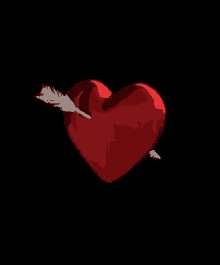
%20webpage%20banner.png)
Troubadours & Unrequited Love: Love's Wound

In the troubadour “Art of Love,” the entire spectrum of love/amor—its joys and sorrows (the rose and the thorns)—was recognized and accepted, and the theme of unrequited love was prevalent in troubadour song.
“Love is only known by him who hopelessly persists in love.” ~Friedrich Schiller
“To love and win is the best thing. To love and lose, the next best.”
~William M. Thackeray
“Ever has it been that love knows not its own depth until the hour of separation.”
~Kahlil Gibran

“My heart’s crippled by the vein that I keep on closing. You cut me open.” ~Leona Lewis, “Bleeding Love”






The excesses of the passion of romantic love has been an abnormal phenomenon found in the poetry and song from the Troubadours to the Romantics. This “transgressive love” (love that exceeds the accepted social and moral boundaries), has been conceived as a “madness,” a “fever” or a “sickness” (i.e., “lovesickness”). However, the twelfth-century troubadours, who coined the term of fin' amor (“refined love”), conceived of it as a great paradox of love; you couldn't have the beautiful “rose” (i.e., the beloved, such as “Rosebud”) without its wounding “thorns;” none of love's joys without its sorrows. In this sense, the suffering of an “unrequited love” for an unattainable lady was taken on with great acceptance. Thus, for the troubadours, the reigning god of love, Eros, is the arrow, the disease, and the cure.
The following is from two troubadours:
“He knows little of love who does not await mercy, for love desires us to suffer and to wait; then in a little time love repairs and amends all the pain he has made us endure so long, and that is why I prefer to die having known true love than to live with a high heart empty of love, for so love fated me from the beginning.”
“Blessed be the pains, the sorrows and the cares which I have long suffered cause of love. Because of them I taste a thousand times more intensely the good which love now makes me feel. So much do the ills of the past cause me to enjoy my present happiness that it seems to me that if there were no evil one would hardly be able to savor the good. Thus evil enhances the good and therefore should be welcomed when it comes.”
So we find the same paradoxical ideal in Wolfram's epic romance Parzival. Trevrizent the hermit says to Parzival:
“The spear had to be thrust into the wound; then one pain helped the other, and from this spear became blood-red... What wondrous things this poison can do. From sorrow they received their wages, for the spear which pierced their hearts to the core carried away their joy. Then in the constancy of their grief they were baptized anew.”
Then there's the following from Chreitien De Troyes, the great medieval writer of the Arthurian romances:
“From all other ills doth mine differ. It pleaseth me; I rejoice at it; my ill is what I want and my suffering is my health. So I do not see what I am complaining about; for my ill comes to me by my will; it is my willing that becomes my ill; but I am so pleased to want thus that I suffer agreeably, and have so much joy in my pain that I am sick with delight.”
The same sentiment can be found from a later Baroque poet in this love tradition, Richard Crashaw:
“For in Love’s field was never found / A nobler weapon than a wound. /Love’s passives are his activ’st part, / The wounded is the wounding heart.”
The Romantic poet Novalis carries this troubadour paradox of love into the 18th century and the Pre-Raphaelite poet, Dante Gabriel Rossetti, carries it into the 19th:
“Whoever flees pain / will love no more./ To love is always / to feel the opening / to hold the wound / always open.”
“Beyond the sphere which spreads to widest space / Now soars the sigh that my heart sends above ; / A new perception born of grieving Love / Guideth it upward the untrodden ways.”
The Pulitzer Prize winning American playwright and novelist, Thorton Wilder, carries it into the 20th century:
“Without your wounds where would your power be? It is your melancholy that makes your low voice tremble into the hearts of men and women. The very angels themselves cannot persuade the wretched and blundering children on earth as can one human being broken on the wheels of living. In Love’s service, only wounded soldiers can serve. Physician, draw back.”
Finally, this troubadour paradox of love finds its champion in the 20th century with the modern troubadour, Leonard Cohen, who knows that even though “The doctors working day and night / ... they'll never ever find that cure for love:”
“… The thorn of the night in your bosom / The spear of the age in your side / Lost in the rages of fragrance / Lost in the rags of remorse / Lost in the waves of a sickness / That loosens the high silver nerves … // And leave no word of discomfort / And leave no observer to mourn / But climb on your tears and be silent / Like a rose on its ladder of thorns ….” (“The Window” )




UNREQUITED LOVE

UNREQUITED LOVE
Unrequited Love is an age-old phenomenon that transcends time and cultures. It is a universal experience that has been immortalized in romance literature, music, and art for centuries.
Unrequited Love, also known as one-sided love, entails a spectrum of emotions, from the searing pain of rejection to the quiet heartache of the depths of longing. It’s about the poignant ache of pouring one’s heart into someone who cannot reciprocate the same level of affection, resulting in the sad reality of unfulfilled desires and shattered dreams. At the core of this poignant experience lies the unrequited lover, whose heart aches with unreciprocated affection.
Unrequited love has a mysterious allure that captivates the human psyche, manifesting a bittersweet range of emotions, filled with hope, despair, longing, and unfulfilled expectations. Unrequited love is characterized by an unquenchable yearning that pierces the heart and soul. It is an ache that permeates every fiber of one’s being, a hunger that cannot be satisfied. Thus, the unrequited lover “can’t get no satisfaction.” Each passing moment is filled with thoughts of the beloved, replaying encounters and cherishing even the slightest hint of reciprocation. The intensity of longing becomes a part of the very essence of the unrequited lover’s existence. The mere presence of the beloved becomes a source of exhilaration, filling every moment with a complex mixture of hope anticipation, and let down.
One of the most tormenting aspects of unrequited love is the flicker of hope that refuses to extinguish. The unrequited lover clings to every glimmer of attention, seeking validation and reciprocation, only to be met with indifference. The unrequited lover experiences a rollercoaster of emotions, where hope and despair intertwine. The intensity of emotions experienced by the unrequited lover can be overwhelming, as they invest their hopes, dreams, and desires into a relationship that may never be realized. It is a testament to the resilience of the human heart, always yearning for a love that seems just out of reach. Therefore, the unrequited lover becomes involved with what the unrequited troubadours knew as “love from afar.”
MEMES DISPLAYING THE HIDDEN VIRTUE IN UNREQUITED LOVE: THE PARADOX











THE PARADOX OF THE “UNHAPPY LOVE”
OF THE TROUBADOURS
The “Unhappy Love” of the troubadours has become a grand metaphor that identifies unrequited love and its leitmotiv of parting—what the musician Tristan, in his lovesickness, sang about “Old tune so full of sadness / That sing’st thy sad complaint.”
This paradox of “Unhappy Love” has to do with the intense suffering and despair of unrequited love, a theme so famous in troubadour love lyric. In the majority of cases, the poems/songs of the troubadours were predicated on the notion of unrequited love and the lover’s constant struggle to win his unattainable Lady’s heart.
Because the troubadours were intoxicated with the object of their unattainable love, they would delight in a bittersweet love which was unrequited—a paradoxical feeling they called “delightful sadness” or what we can call “sweet misery.”
The following is from Denis de Rougemont, the author of the classic study of the troubadours, Love in the Western World (quoted in part #6 of “The troubadours & the Beloved” musical essay):
“The whole of Occitanian [Troubadour] . . . lyric has but a single theme—love; and not happy, crowned, and satisfied love ... but on the contrary love perpetually unsatisfied . . . .
The tremendous success of the Tristan Romance shows, whether we like it or not, that we have a secret preference for what is unhappy. . . . Why is it that we delight most of all in some tale of impossible love? . . .Hence, whether our desire is for the most self-conscious or simply for the most intense love, secretly we desire obstruction. . . . Consider our literature. The happiness of lovers stirs our feelings only on account of the unhappiness which lies in wait for it. . . . Otherwise we lapse into a picture-postcard idyll. Happy love has no history—in European literature. . . . The outstanding find made by European poets . . . is the secret of the Tristan myth; passionate love at once shared and fought against, anxious for a happiness it rejects, and magnified in its own disaster—unhappy mutual love.”








The Paradox of Amor & the Rose:
"The way the night knows itself with the moon,
be that with me. Be the rose
nearest to the thorn that I am."
~ Jelaluddin Rumi
"Misery and joy have the same shape in this world:
You may call the rose an open heart or a broken heart."
~Khwaja Mir Dard (18th century Sufi and Mughal poet)
"Out of the shell of the broken heart emerges the newborn soul."
~ Hazial Inayat Khan, The Heart of Sufism



.jpg)
"Love's Wounds" (Bouguereau)



The Path of True Love Never Did Run Smooth (Hughes)


Why There Ain't No Cure For Love
“The arrow that inflicts the wound is the same as the arrow that heals it.” ~Romantic adage
“This is a very mysterious thing that electric thing that happens and then the agony—that can follow which is that which the troubadours celebrate—the agony of the love, the sickness that doctors can’t cure. The wound can be healed only by the weapon that delivers the wound. What the wound is the wound of my passion and agony of love for this creature and the only one who can heal me is the one who delivered the blow you know.” ~Joseph Campbell
Unrequited Love
_jp.jpg)
Unrequited Love: "Dante and Beatrice" (Waterhouse)

Unrequited Love

Unrequited Love: "Dante's Dream at the Time of the Death of Beatrice" (Rossetti)

Unrequited Love
Just remember, the sweet is never as sweet without the sour, and I know the sour. . .
You can do whatever you want with your life, but one day you'll know what love truly is. It's the sour and the sweet. And I know sour, which allows me to appreciate the sweet.
~ Brian, Vanilla Sky (2001. Cameron Crowe)



MEMES OF UNREQUITED LOVE































